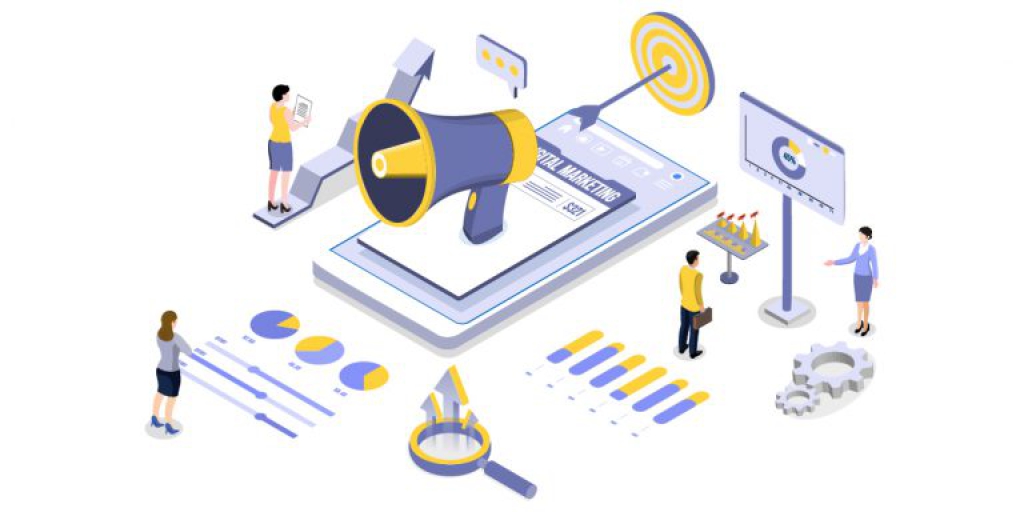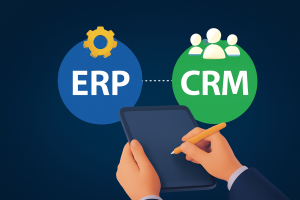Top 10 Analytics Tools for eCommerces

All businesses are now primarily focused on data analysis. It can be not easy to choose the right data analytics tool. Let’s examine the most popular data analytics products currently available.
Before selecting the data analysis tool that will work best for your company, you need to consider a few factors. It would be excellent if you first comprehended the data categories your business wants to study. To construct a unified database for analytics, you must choose data sources and replicate them in a data warehouse before you can begin data analysis. To safeguard sensitive data, particularly when shared between departments, you must evaluate data security and governance.
How to Choose the Right Data Analytics Tool
After putting all the data in one place, you can start to look at it using different tools for data analysis. But how will you choose the right person for your business? Before picking a data analytics tool, you should think about the following significant factors:
- First, consider your business needs and who will use the tool. Experts, scientists, and people who don’t know much about computers can use data mining tools. Few data analytics platforms offer a live way to iterate on code development, while others let non-technical users do simple point-and-click analysis. The tool should also help you see data in a way that works for your business.
- The platform’s ability to model data is also essential. Some directly model data and others allow a semantic layer.
- Think about the price and the licenses. You can use free tools. Some tools cost money to license or use regularly. It would help if you didn’t ignore free tools because the expensive ones might not be as strong or have as many features.
Now, let’s look at some of the most popular tools for analyzing data that are on the market.
The Top Analytics Tools for eCommerce
Here are some of the best eCommerce analytics tools to help you grow your brand.
1. Optimizely
This is an excellent way for business owners to increase sales and make shopping more enjoyable. They have tools useful for eCommerce businesses, such as A/B testing, which can be used to create personalized landing pages or change parts of your website. The device is based on data and uses user behavior to get information that can be used.
Features:
- Trying different ways to check out can help keep people from leaving their shopping carts.
- Using Optimizely, you can use chatbots to simplify and improve your customer service.
- By collecting customer-focused data that can be used, you can change how your site works to give your users a better experience.
2. Crazy Egg
This innovative tracking tool helps you look at your eCommerce traffic data and figure out how to use it to improve the customer experience. It makes it easy to get to data through analytics tools that are easy to use so that businesses can make better decisions.
The tool lets you see how your eCommerce shop looks and works on different devices. It can be used for advanced classification by businesses of all sizes.
E-commerce shops can learn more about their customers and get the information they need to give each visitor in a niche market an immersive online experience. Talk about up-to-date!
Features:
- Heatmaps and site videos show how people use your website and let you know which parts people look at the most.
- With “Scroll Maps,” you can see if all the “Call-To-Action” (CTA) buttons are in the right place.
- With A/B testing, you can make websites with different ways of showing information and see which works best.
3. Glew.io
This shows data and information in real-time for all platforms that are connected to an eCommerce business on a single dashboard. Glew has features that save time by getting rid of the need to do reporting jobs by hand. The software is a tool that can be used by both small and big eCommerce businesses.
Features:
- In one place, you can keep track of sales statistics from all platforms.
- Glew.io lets you tell the difference between goods that sell well and those that don’t.
- Using advanced data, you can target specific groups of customers and look at what they buy.
- Review data from Google Ads, Facebook Ads, and Instagram Ads, among others, to figure out how well your social media marketing plan is working.
4. Google Analytics
This is a free tool from Google that can tell you everything you need to know about how many people visit your site. However the “Enhanced Ecommerce” tool gives merchants access to powerful metrics and shows them how people find their sites. It keeps track of them as they move through each step of your online sales process before they decide to buy something.
Features:
- Find the weak spots in your checkout process or use Google Analytics to figure out why people leave their shopping carts.
- Check out the pages on your site where people spend the most time and the ones where they leave quickly so you can make changes.
- Use data from traffic tracking to find out where people are coming from and what gets the most people to buy from your eCommerce business.
- To improve your sales, you should know how much a customer is worth over their lifetime and which things are selling like hot cupcakes and which ones aren’t.
5. Supermetrics
This is a marketing analytics tool that pulls data from different places to help you figure out which campaigns and platforms are getting you more conversions. You can use the tools to compare conversion rates to things like time on site or traffic to a channel.
The analytics help determine how successful a marketing strategy is in bringing more customers into the conversion funnels.
Features:
- Automate data refreshes and set up email programs so that you can analyze the most recent data.
- Visualize the data sets you’ve collected from Shopify, Facebook Ads, Google Ads, and other marketing outlets.
6. Woopra
This is a product analytics system with tools for analyzing user journeys from start to finish. Woopra helps find drop-off places so orders are less likely to be left behind. You can also use triggers to take real-time steps based on user behavior. You can tailor your message to the right people and connect with them through relevant offers or messages.
Features:
- Find out what needs the most work on your eCommerce site.
- Look at the abandonment rates to find out why people leave.
- It helps determine how long it takes people to decide to buy something on average.
7. Matomo
Matomo is an open-source eCommerce tracking software that used to be called Piwik. It has analysis tools that are similar to those in Google Analytics. In addition to analyzing website traffic, Matomo also has extra tools for keeping an eye on eCommerce. The tool is meant to improve how well your online shop works.
Features:
- Use built-in prompts to react in real time to what users do.
- Personalize and target your marketing messages across all platforms based on where the customers are and what they buy.
- Look at detailed reports that show you data like the average order value and conversion rate so you can fix any problems that are causing people to leave their shopping carts.
- If data privacy is a worry, let your users know that they own all of their data and can choose to store it safely on your eCommerce platform if they want to.
8. Hotjar
This specialized tool uses heatmaps to help you figure out how people use your eCommerce shop. Hotjar shows where people spend the most time on your product or service pages and lets you know what people are most interested in. It can be used to plan marketing efforts and get feedback from customers.
Features:
- With heatmaps, you can see where customers click, scroll, and move on to your eCommerce store.
- Export the tracking data from the heatmap to visually see how people use your website.
- Send comments from customers to the right teams.
- Run your Net Promoter Score® surveys automatically, and certain customer activities can set them off
9. Kissmetrics
This is the best analytics option for building an eCommerce business that can grow and make money. The analytics tool has many features and focuses on people, which helps you improve the rate at which you get new customers.
It tells you in detail what people buy on your eCommerce site and how often they return after purchasing something. Before implementing, you can try out your plans in the testing and staging sandboxes.
Features:
- Try out different marketing tactics by using the tool to get important information.
- You can improve your process for getting leads because the tool keeps track of every contact with a customer.
- With Kissmetrics’s deep data tracking features, you can find out how your business is doing.
10. FullStory
This platform for Digital Experience Intelligence (DXI) gives companies the data they need to improve digital experiences. The tool collects information about how customers interact with a business and provides analytics and actionable insights. ECommerce companies can proactively enhance their customers’ digital experiences with the platform.
Features:
- Use the power of data to determine what affects income and how to use it.
- With complete information about each customer’s experience, you can make intelligent choices.
- Streamline processes by fixing problems and fixing them in a way that is based on data.
- Try out different digital experiences to get more customers and keep the ones you have. This will keep your customers coming back.
Conclusion
Any business that wants to improve its processes can get a lot out of an eCommerce analytics tool. That helps gather important information about buyers based on their actions, where they are, how they respond to marketing campaigns, the past of their web browser, and any shopping carts they leave behind. The data is analyzed to find out what it means and to make choices that will increase conversions.
You need to ensure that the data tool you choose works well with the size of your business. The tool should be able to gather and examine important information about how your customers think and how they use your website.
Tools that record how customers use your eCommerce site can help you determine how to improve the shop experience. You can get your target group interested and then turn them into long-term customers.
If you need help figuring out which eCommerce analytics tool is right for you and how it can work with your backend, the experts at Weingenious Technocrats will help you with the whole process. Fill out the form to get going right away.
Get in touch with us today!




